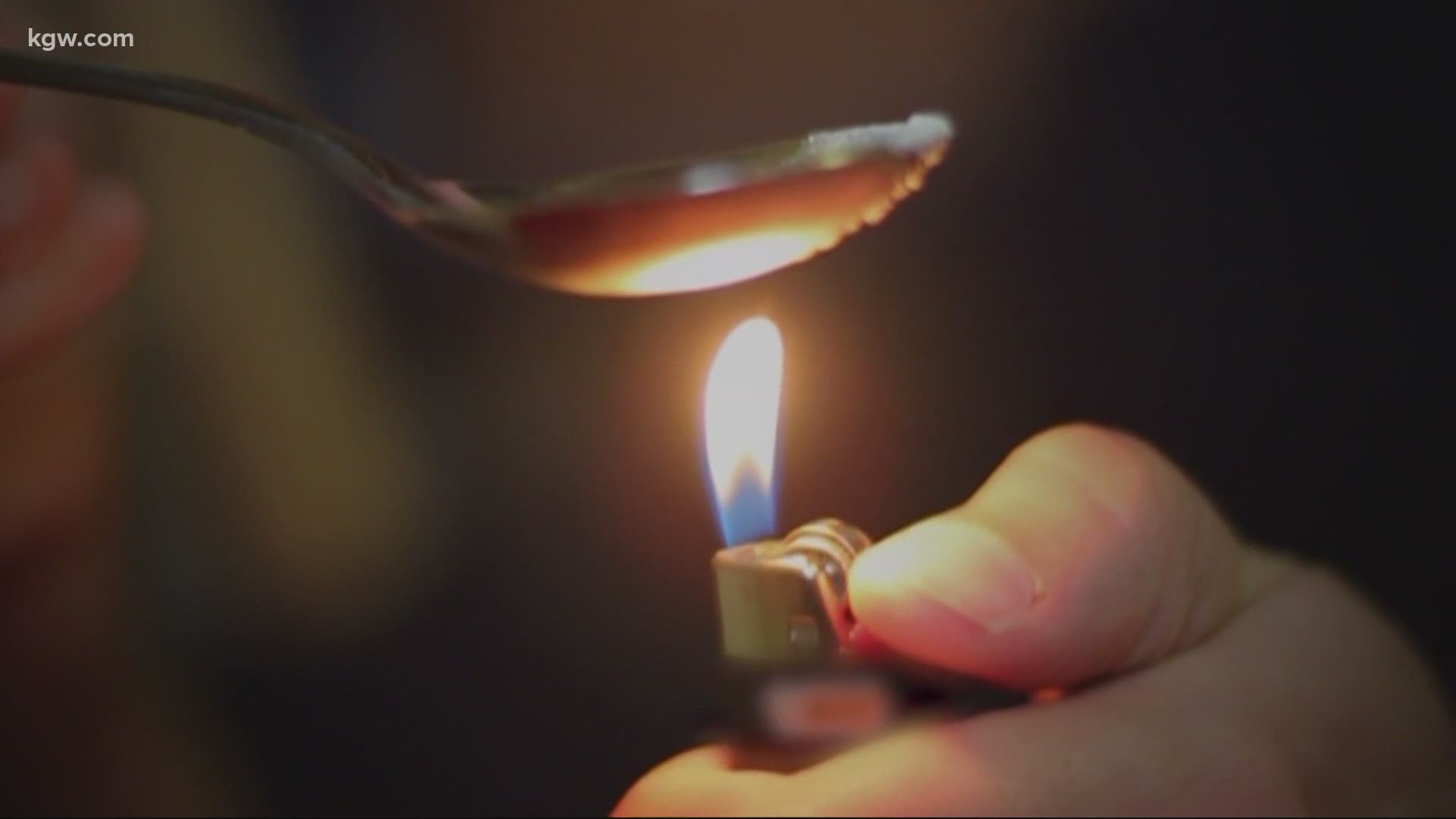PORTLAND, Ore. — Nearly 10 years ago, a random comment by his lawyer prompted Portland-native Hubert Mathews to try something new amid his cycle of addiction and incarceration.
“He said, ‘You might want to think about getting some treatment.' That was the first time I ever heard of treatment in the criminal justice system,” Mathews said.
He’s been sober since, after nearly 20 years of using “everything," namely cocaine.
Today, Mathews works as a certified drug and alcohol counselor, and he’s the star of a new campaign ad for Oregon Ballot Measure 110, the Addiction Treatment and Recovery Act.
“You're not going to arrest your way out of this drug problem,” he said. “It’s just going to cost taxpayers more and more money, and you're not going to get favorable results," he said.
The measure, also known as the Drug Decriminalization Measure, promises to remove criminal penalties for low-level drug possession charges and replace them with a $100 fine. That fine could then be waived if the person seeks treatment. A hotline to help the person access treatment, supporters say, would be printed on the back of the citation.
The measure also promises to beef up treatment options statewide and pay for that with surplus tax-revenue from marijuana sales.
The measure has a long list of endorsements, including the Oregon Nurses Association, the NAACP of Portland and Central City Concern.
“Our current drug laws have … been a failing system. It's expensive and it ruins lives,” said Janie Gullickson, chief petitioner for the measure. “A public health approach to addiction is long overdue.”
Opponents, including Oregon Recovers and the Oregon Council for Behavioral Health (OCBH), argue the measure fails to bring in any new revenue, which they believe is absolutely needed to tackle addiction in Oregon.
In other words, they think it oversells its promise to create new treatment options and will thwart future chances of raising more money, which lawmakers have been trying to due for years by campaigning to raise alcohol taxes.
“The ballot measure fails to provide additional resources for the development of alternative equity based and trauma informed interventions to improve access to treatment and recovery services. Instead it reappropriates marijuana dollars, which are currently allocated to counties, safety net behavioral health services, and schools,” wrote the Oregon Council for Behavioral Health in a statement.
Chief petitioner for the measure Anthony Johnson said the funding is being reallocated from a number of different sources. If the measure were to pass, he said, the money that currently goes toward behavioral health services via the counties will go to them through the state.
Schools, he added, will still get the $45 million in marijuana tax revenue funding they were guaranteed via voter-approved legislation. Lawmakers have vowed to make up the difference tied to any funding pulled from them beyond that, via the Student Success Act and the general fund.
Critics also argue the groups behind it haven't consulted with treatment groups already operating here on how to reach those most impacted by addiction. That includes New York-based Drug Policy Alliance, which has donated millions of dollars to the campaign.
In its statement, the OCBH wrote the measure “…destroys pathways to treatment and recovery, and fails to address racial injustice in our systems."
A spokesman for Oregon Recovery said via phone Wednesday staff are concerned about a lack of detail in the measure tied to which agencies would receive funding, adding the measure would largely eliminate the court system’s ability to mandate treatment for people.
Johnson said the campaign has heard similar complaints. The measure, he noted, would allocate at least $100 million a year for addiction recovery services, as opposed to the current standard of $25 million. The Oregon Health Authority would dole out that money, via grants, to existing agencies both to establish new addiction recovery centers and to continue their normal operations. With the boost in funding, Johnson said, existing programs will not be eliminated. They’d be added to.
Regarding the court mandates system, Jessica Kampfe of the Marion County public defender’s office said via phone Wednesday, “The court orders the person to get an evaluation and get treatment. It’s not provided. That person has to go pay $150 to an agency that does an assessment for their treatment needs … A lot of people never get past that first barrier of the $150 evaluation.”
Kampfe, who supports the measure, said “a lot of people” can’t afford the $150 and never get treatment. Under Measure 110, the evaluation would be free.
Regarding the OCBH’s point about addressing racial injustice, the Urban League of Portland has “paused” its endorsement of the measure, arguing the campaign had not done enough to work with groups who provide outreach to communities of color.
“I was surprised that DPA will not consider any community investments in support of Oregon’s efforts to end our addiction crisis in lieu of large payments to the good ol’ boys and girls of Oregon political consultants,” said president Nkenge Harmon Johnson to OPB.
“It's just politics,” Hubert Mathews said of the debates surrounding Measure 110. “And I know, we’ve got to get to solutions. We got quit talking about it.”

